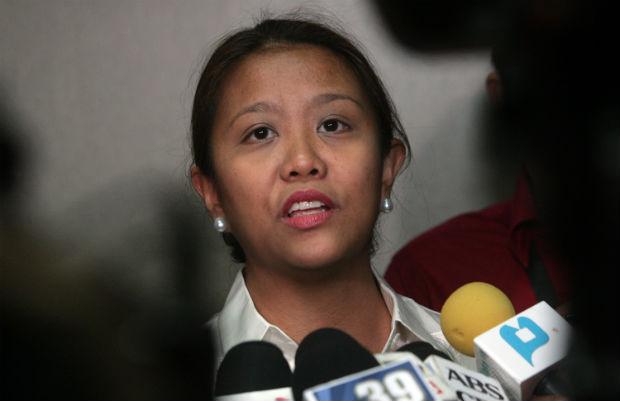MANILA, Philippines—The Senate should look into the issues raised against the Sajahatra Bangsamoro Program, a joint undertaking of the government and the Moro Islamic Liberation Front (MILF) that aims to improve the health, education and living conditions of Bangsamoro communities, according to Sen. Nancy Binay.
Binay recently filed a resolution calling for the inquiry amid reports the supposedly “secretive” program was being implemented by presidential peace adviser Teresita Deles for MILF members and supporters allegedly without the knowledge of and coordination with local government units.
Binay pointed out the program was not supposed to be exclusive to MILF members, but should be open to all, including Christians, Muslims and lumad. But the list of areas covered and the list of beneficiaries came from the MILF, she said.
Given this, the program should be given a deeper look, she said.
“The uncoordinated efforts of various government agencies in implementing the program without the knowledge of local government units as well as the counterproductive identification of coverage and beneficiaries of the program with the end view of providing various public services warrants an investigation in aid of legislation to ensure social protection,” she said.
She added that the Senate probe should be conducted by the committee on social justice, welfare and rural development, which she chairs.
The Sajahatra Bangsamoro Program was launched in February 2013, four months after the government and the MILF signed the historic Framework Agreement on the Bangsamoro, a deal envisioned to bring peace to conflict-ridden areas in Mindanao.
Sajahatra is an Arabian-Bahasa-Melayu derivative denoting blessings, prosperity and peace. The program was to focus on quick-gestation, high-impact and social protection-type programs. The time frame was 18 months.
Under the program, the MILF provides a strong oversight in the design, implementation and monitoring of the projects. The MILF also plays a leading role in choosing the beneficiaries.
Services provided under the program consist of health insurance for 11,000 beneficiaries through PhilHealth, upgrading of community-based services through the Department of Health, 500 college scholarships through the Commission on Higher Education, educational assistance through the Department of Education, a cash-for-work program for 11,000 beneficiaries, a supplemental feeding program through the Department of Social Welfare and Development, and technical-vocational training by the Technical Education and Skills Development Authority for 1,000 beneficiaries.
